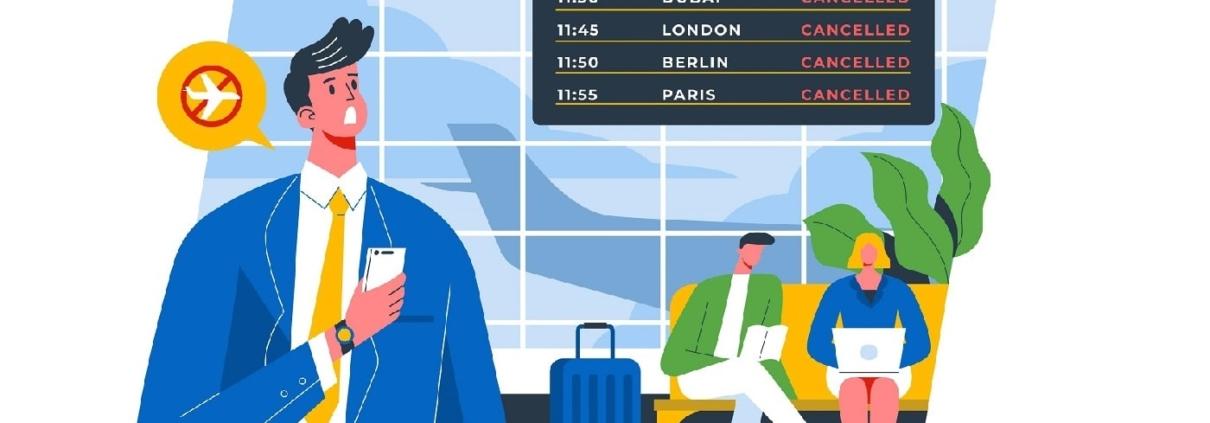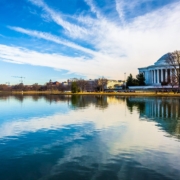How Does the Airbnb Cancellation Policy Work? A Full Guide
The Airbnb cancellation policy is a procedure that regulates cancellations of reservations for both hosts and guests. With regard to terms and compensation, Airbnb provides a variety of cancellation options. Continue reading to find out more about the various cancellation policies and to decide which one best fits your company.
Airbnb Cancellation Options
Airbnb offers the following cancellation options:
- Flexible
- Moderate
- Firm
- Strict
- Strict long-term
- Flexible long-term
- Super strict (30 Days)
- Super strict (60 Days)
An Overview of Airbnb Cancellation Policy Terms
Flexible
It is the most lenient option for guests because Airbnb’s cancellation policy is so liberal. According to this policy, guests who cancel their reservations at least 24 hours before check-in will receive a full refund. Additionally, hosts will miss out on the cleaning fee. If a guest cancels a reservation less than 24 hours before check-in (discover more about Airbnb Self Check-In), they must pay for each night they stay as well as one additional night. The guest is entitled to a full refund for any nights that remain of the reservation if he or she decides to leave after arriving.
Pros:
- Higher ranking in Airbnb’s search engines (Read more about SEO for Airbnb).
- Greater potential for bookings and keeping your calendar full.
- More flexibility for guests.
- No commitment is required from guests.
Cons:
- Hosts are not protected against cancellations.
- Greater chance of revenue loss.
- Hosts take on all the risk.
Moderate
The most common choice is the Moderate cancellation policy. Although it is a little tougher than the Flexible policy, it nevertheless offers guests some flexibility and the chance to get a full refund. The Moderate policy reduces the risk of cancellation for Airbnb hosts. According to this policy, a reservation must be canceled at least 5 days prior to the check-in date in order to get a full refund of the lodging costs.
The first night of their stay and the Airbnb service fee will not be reimbursed if the visitor cancels less than five days before the booking’s start date. Additionally, they will only have 50% of the booking fees reimbursed. A 50% refund of the lodging costs for any additional nights will be given to the visitor who decides to cancel after checking in. Even so, they’ll still cover any overnight stays.
Pros:
- A guest cannot abruptly cancel their reservation without incurring charges.
- Hosts are more protected from financial losses brought on by cancellations.
- This cancellation policy’s nature may draw more responsible visitors.
Cons:
- Within a week of the reservation, hosts are still at risk of cancellations.
- The cancellation compensation will still be less for hosts than the initial booking cost.
- After the cancellation, it could be difficult to obtain another reservation to complete the dates.
Firm
To be eligible for a full refund under the Firm’s cancellation policy, visitors must cancel at least 30 days prior to check-in. If your guests cancel between 7 and 30 days before check-in, our policy permits a 50% refund. Hosts will still be paid in full for all reserved nights even if a visitor cancels less than seven days before check-in. This is a fantastic middle ground between restrictive and accommodating cancellation procedures. In addition, visitors have the option to cancel their reservation within 48 hours and receive a full refund as long as they do so at least 14 days prior to their check-in.
Pros:
- The ability to cancel within a fair time period is provided to guests, however, they are unable to do so at the last minute without incurring fees.
- Hosts are better guarded against unforeseen financial losses.
- If a guest cancels within the time range, hosts are given enough time to secure a replacement appointment.
Cons:
- Within a month of the reservation, hosts are still at risk of cancellation losses.
- If the cancellation happens closer to the 7-day pre-check-in window, it could be difficult to find another visitor.
Strict
If a guest cancels their reservation within 48 hours of making their reservation and at least 14 full days before the listing’s local check-in time, they may be eligible for a full refund under the strict cancellation policy of Airbnb. No matter how far out the check-in date is, visitors are only eligible for a 50% refund after 48 hours. If the cancellation is made between seven and fourteen days prior to the start of the booking, the guest will also be given a 50% refund of the lodging costs. The cleaning charge will also be refunded to them, but not the service price. The guest will not be entitled to any reimbursement if they cancel their reservation with less than seven days to go.
Pros:
- Due to potential financial loss, guests are less likely to cancel a reservation.
- For canceled dates, hosts have extra time to secure a replacement reservation.
- Reduced the possibility of income loss due to cancellations.
Cons:
- Visitors might be less likely to reserve a room at a property with this policy.
- Lower visibility in the search results for Airbnb.
- may result in a decline in the total booking rate.
Long-term (Strict and Flexible)
All reservations lasting 28 nights or more are subject to Airbnb’s long-term cancellation policy. Once the reservation qualifies as a long-term stay, this policy will take precedence over the usual cancellation policy you have selected.
Strict long-term
To receive a full refund under the stringent long-term cancellation policy, your visitors must cancel within 48 hours of placing their reservation and at least 28 days before check-in. Hosts receive full payment for all nights stayed plus an additional 30 nights if a guest cancels within 28 days of arrival or during their stay. You will receive 100% of the booking cost for the nights left on a guest’s reservation if they cancel with less than 30 days to go.
Flexible long-term
To get a complete refund, guests must cancel with at least 30 days’ notice. The first month’s reservation fee is still due if the guest cancels within 30 days of the check-in date. In addition, if a guest decides to leave early during their stay, they are still responsible for paying for the subsequent 30 days. You will receive 100% of the booking cost for the nights left on a guest’s reservation if they cancel with less than 30 days to go.
Pros:
- If a guest cancels, hosts have plenty of time to find another reservation.
- If a guest cancels within 28 to 30 days of check-in, hosts are reimbursed for a whole month.
- It takes less time for hosts to find new visitors and make reservations.
Cons:
- Lower earning potential.
- Long-term visitors pose a higher danger of causing harm to your property.
- Greater possibility of difficulties coming from lengthier bookings.
Super Strict 30 Days
Only seasoned hosts are invited to use this option. If a guest cancels a reservation at least 30 days before check-in, they are eligible for a 50% refund under the Super Strict 30 Days cancellation policy. The accommodation costs are forfeited if an Airbnb guest decides to cancel with less than 30 days till check-in. Finally, if the guest wishes to cancel after checking in, there is absolutely no return granted.
Pros:
- It is unlikely that guests who reserve properties with this policy will cancel.
- In the unfortunate occasion that guests do cancel, hosts are amply compensated.
- If a guest cancels, there is still plenty of time to find a replacement reservation for those dates.
Cons:
- This policy can deter visitors from making a reservation at the hotel.
- may result in a decline in the total booking rate.
- By enforcing this guideline, you run the risk of coming across as a rigid or unwelcoming host.
Super Strict 60 Days
Like the Super Strict 30 Days policy, the Super Strict 60 Days cancellation policy operates similarly. Only experienced hosts are permitted to use this option, and invitations are required. The only distinction is that in order to earn a 50% refund on the lodging costs, the client must cancel the reservation at least 60 days prior to check-in.
The Airbnb visitor will not be given a refund if he or she decides to cancel within less than 60 days of check-in or after doing so.
*The Super Strict 30 Days and Super Strict 60 Days are both by invitation only and only applicable to exceptional circumstances.
Pros:
- When using this policy, visitors are less likely to cancel their reservations.
- In the unfortunate occasion that guests do cancel, hosts are amply compensated.
- If a guest cancels, there is still plenty of time to find a replacement reservation for those dates.
Cons:
- This policy can deter visitors from making a reservation at the hotel.
- may result in a decline in the total booking rate.
- By enforcing this guideline, you run the risk of coming across as a rigid or unwelcoming host.
How Has the Airbnb Extenuating Circumstances Policy affected the Cancellation Policies?
Airbnb is regularly reevaluating its Extenuating Circumstances policy as a result of the COVID-19 epidemic. However, starting on May 31, 2022, both stays and Airbnb Experiences will be subject to the host’s cancellation policy. The COVID-19-related extenuating circumstances will no longer be covered by Airbnb’s extenuating circumstances policy. This only differs for domestic reservations in South Korea where a visitor or host has COVID-19.
Choosing the Right Policy for Your Listing
For hosts, dealing with cancellations is difficult. They may give you only a brief window of opportunity to find a substitute visitor, which would result in missed revenue. In order to maximize your reservations, you should carefully consider your Airbnb cancellation options. Choosing the appropriate policy for your company will reduce the likelihood of a disagreement requiring Airbnb staff intervention. You might choose different cancellation procedures based on the characteristics of your Airbnb management.
It is advised that you choose the Flexible cancellation policy for the majority of hosts. This rule is the one that gives the most thought to the needs of visitors. By choosing this option, you demonstrate your willingness to be flexible and provide free cancellation. This will make visitors feel appreciated and make them more inclined to make a reservation with you, raising your overall booking rate. The Moderate cancellation option can also be a smart choice if you have attained Superhost status or have completed numerous appointments.
This approach increases the likelihood that you will only get serious visitors who are unlikely to cancel at the last minute. The Strict cancellation policy is not something that seasoned hosts advise using. Customers typically want more flexibility because vacation plans can change. No of how far in advance guests notify you of their cancellation, they will not be eligible for a full refund under the Strict cancellation policy. You probably won’t be able to entirely fill your calendar with commitments using this option.
Airbnb Host Cancellation Policy
In order to provide guests with a positive experience, Airbnb works to reduce host cancellations. But occasionally, as a host, you could be left with no choice but to cancel a reservation. If you choose to cancel a reservation, Airbnb may charge you a fee based on the circumstances and the frequency of your most recent cancellations:
Airbnb doubled its cancellation fees for hosts who cancel trips prematurely as of August 2022. A minimum cancellation cost of $50 USD and a maximum cancellation fee of $1,000 USD will apply to the platform’s charges. The charge is determined by the reservation’s total and the date of cancellation:
- If you cancel your reservation with less than 48 hours’ notice or after you arrive, you will be charged 50% of the total cost of your reservation for the nights you did not stay.
- If a reservation is canceled more than 48 hours but less than 30 days before check-in, there is a fee of 25% of the total cost of the reservation.
- 10% of the reservation price is charged for cancellations made more than 30 days prior to check-in.
The base cost, cleaning fee, and any pet fees are included in the reservation amount when determining cancellation fees, but taxes and guest fees are not included. The computed cancellation cost will be increased to $50 USD if it is less than $50 USD and decreased to $1,000 USD if it is more than $1,000 USD. According to the Payments Terms of Service, cancellation fees are normally deducted from the subsequent payout(s) made to the Host. Payment for that reservation will not be given to hosts who cancel or are determined to be responsible for cancellations, or if a payout has already been given, future payouts will be reduced in accordance with this Policy’s fees and consequences.
Extenuating conditions that allow hosts to postpone events include
- abrupt modifications to government travel regulations.
- pandemics, epidemics, and local or national emergencies as announced by the government.
- Governmental limitations on travel forbid or restrict access to or from the area of a listing (this does not include travel advisory warnings).
- Military action or other hostilities.
- Natural disasters.
- Unauthorized parties or events.
If you can’t keep your booking reservation, try to cancel it as soon as possible so that guests have time to make alternative preparations. Within 24 hours of the check-in time, you will not have the opportunity to cancel a reservation online; instead, you must get in touch with Airbnb personally.
Airbnb Guest Refund Policy and Cancellations
The Airbnb refund policy is directly tied to the cancellation policy. The Airbnb refund policy outlines the situations or problems that qualify visitors for a return. There are various circumstances under which guests might be eligible for a refund from Airbnb:
- Inability to access the accommodation — Within 24 hours of check-in, a host cancels the reservation, alters the reservation information without the guest’s permission, or forgets to provide the guest with the keys or access code.
- Incorrect or inaccurate listing details — Inaccurate or incomplete information was provided in the listing description. This might have to do with the size, location, amount of bedrooms, and amenities of the home. It might also apply to the amenities and equipment mentioned that are malfunctioning or broken.
- Health and safety concerns — The lodging is unclean, has health and safety risks, or has pets or other animals that the host did not mention in advance.
Any of these circumstances must be reported to Airbnb by the guest within 24 hours. The final decision regarding whether to refund the visitor or find alternate lodging will be made by Airbnb. Guests must offer proof of their claim, such as images, videos, and other written materials. Additionally, they must offer proof that they made an effort to speak with the host personally and fix the issue. After reviewing the claim, Airbnb will let the guest know of its decision.
Conclusion
It takes some considerable study and deliberation to determine the ideal Airbnb cancellation policy for your company. Thankfully, automation can allow you to streamline the day-to-day operation of your company. By automating a number of your common hosting activities using vacation rental software like IGMS, you can concentrate on expansion and growth.
- Making use of templates for your messaging and automating your guest communication.
- Making templates for customer reviews and automating the delivery of those reviews.
- Putting all visitor communications in one stream in a single inbox.
- Making an expert direct booking website in a matter of minutes to avoid paying Airbnb service fees.
- Creating and assigning live-tracking jobs to your cleaning crew.
- managing direct reservations made through sources such as company websites.
- safe online payment processing through integration with Stripe.
- Use a dashboard and reporting tools that are integrated to monitor business growth and developments.
About VRBO Cancellation Policies read here.


















